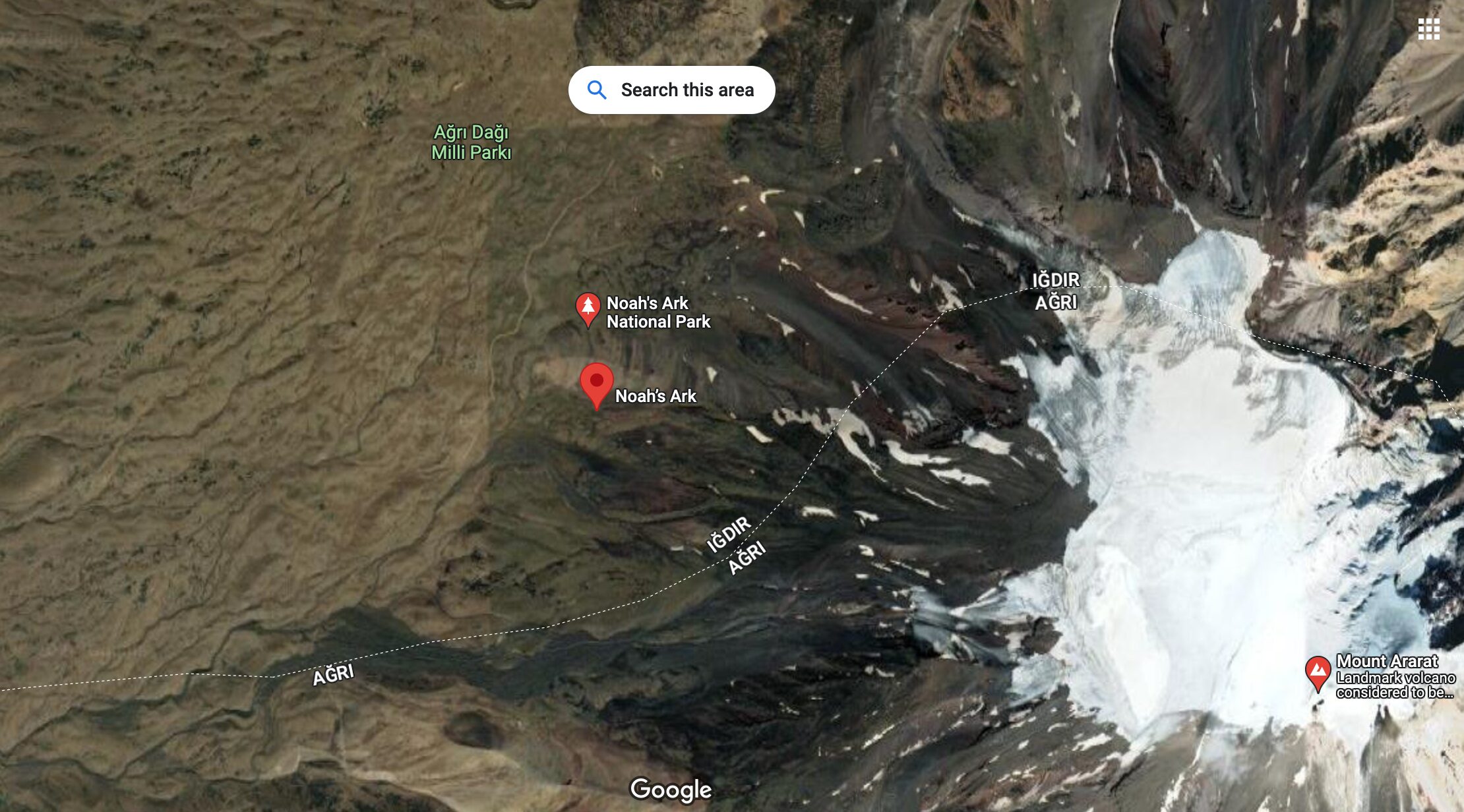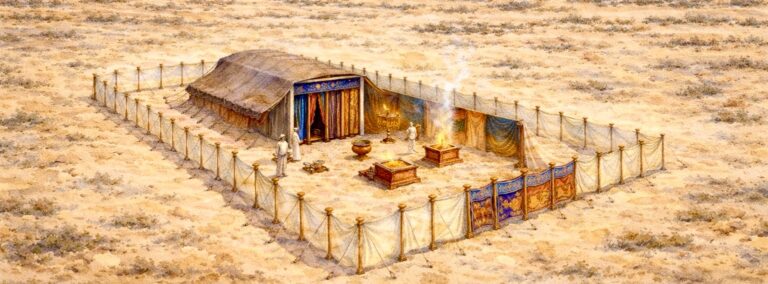Editors from around the world tell stories of living in God's grace
In plain sight: A ship-shaped object. The right size as described in scripture, and radar shows that this object has rooms.
Could it be? That while expeditions have braved the ice and storms of the lofty Mt. Ararat looking for the Ark high on its slopes, it could actually be on a nearby hill in relatively plain sight? The bible states that the Ark came to rest “in the mountains of Ararat” (plural), and thus the ship doesn’t need to rest directly on the highest peak to qualify as the real thing. See Genesis 8:4. Read on. You’ll find this interesting.
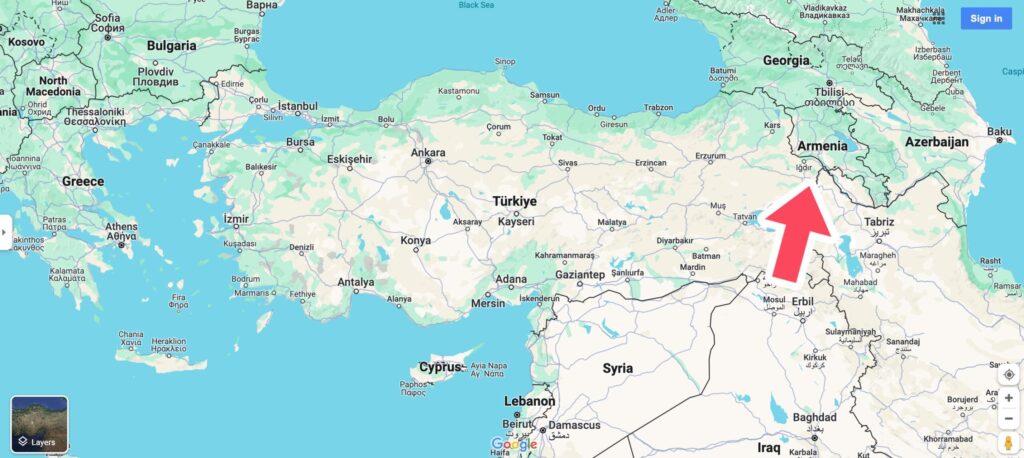
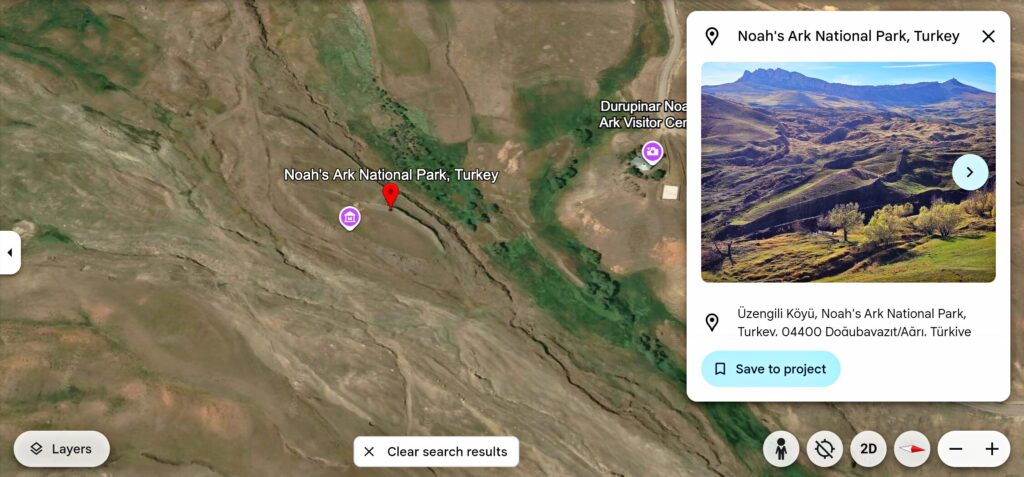
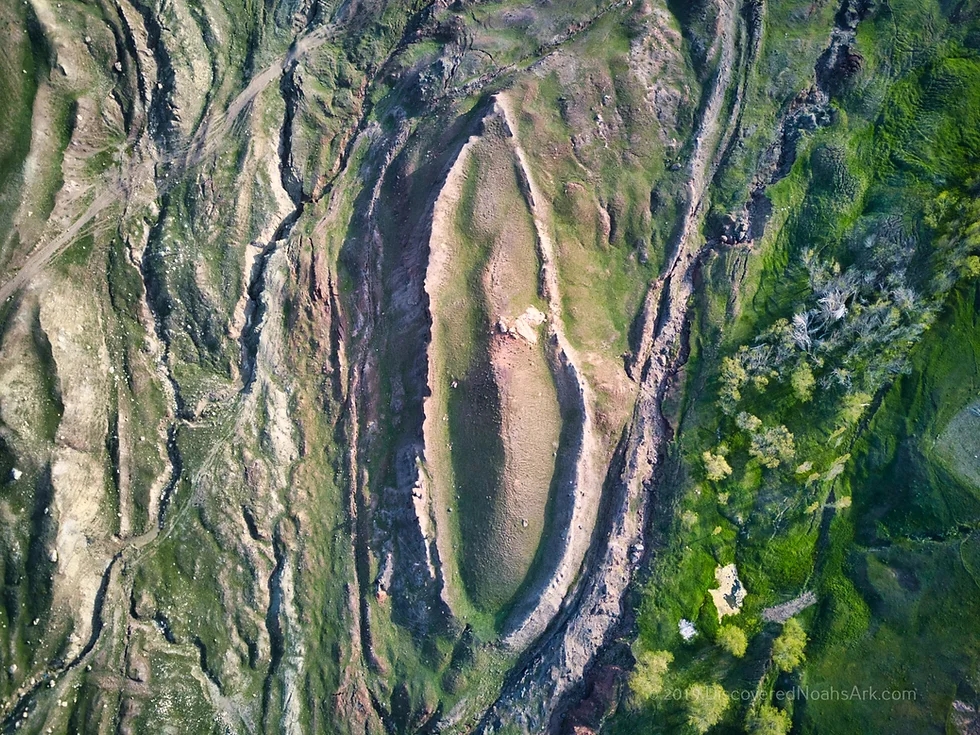
Noah’s Ark Introduction
Eastern Turkey
The Durupinar site at Köprüköy, 76002 Kavaktepe/Iğdır Merkez/Iğdır, Türkiye
There was a bit of a sensation on September 5, 1960 when Life magazine published an article and a dramatic aerial photo of a large object in Eastern Turkey that looked remarkably like a ship. Early studies dismissed the object, located in the foothills of Mt. Ararat, as a coincidence, and thus the site fell into obscurity once again. Read on. This site was destined to gain new attention a couple of decades later.
In the meantime, several adventurers started looking high up on the slopes of Mt. Ararat and came up empty-handed.
The Durupinar Site Revisited
During the 1980’s, Ron Wyatt, an anesthetist from Tennessee, visited the ship-shaped object at the Durupinar site in Turkey and scanned the structure with ground penetrating radar. His scans showed a boat shaped layout under the surface, complete with vertical wall structures within the hull shape. Ron concluded that this was indeed a man-made object. Over the next number of years, Ron visited the site numerous times and performed more tests. Vertical beams were clearly visible even when standing beside the edge of the structure. And Ron’s radar tests showed a pattern of rivets and beams.
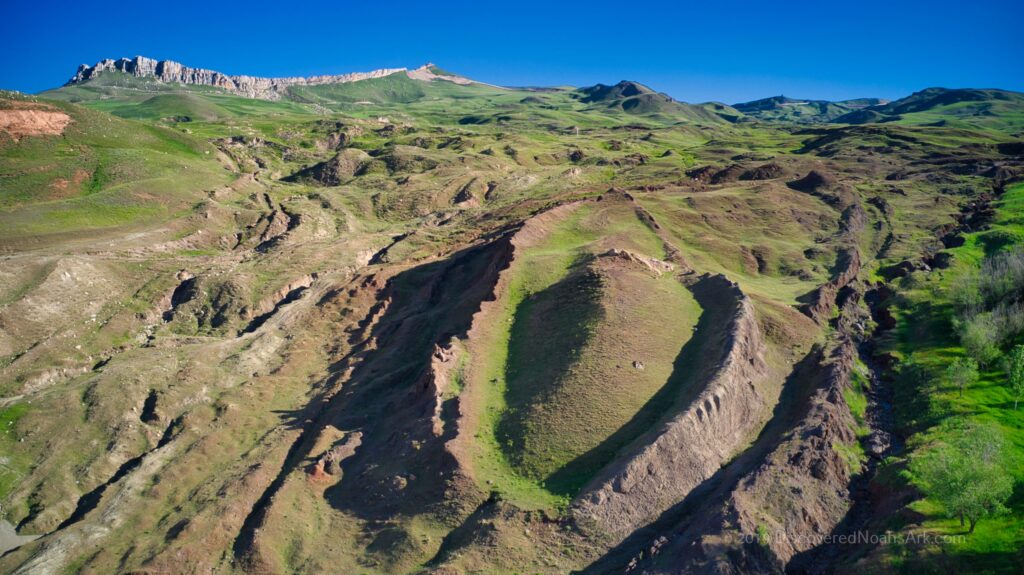
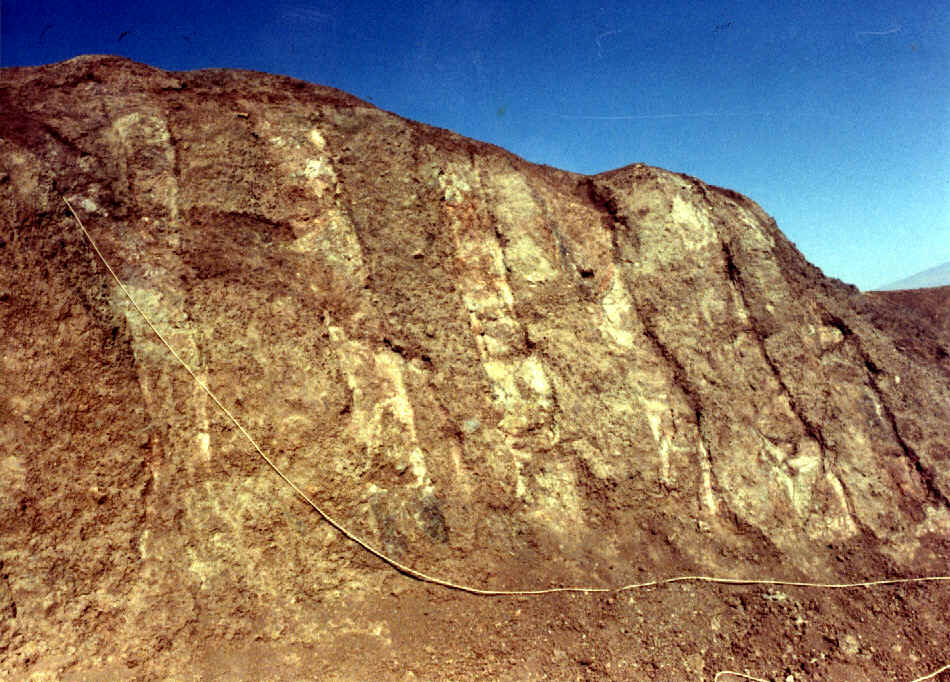
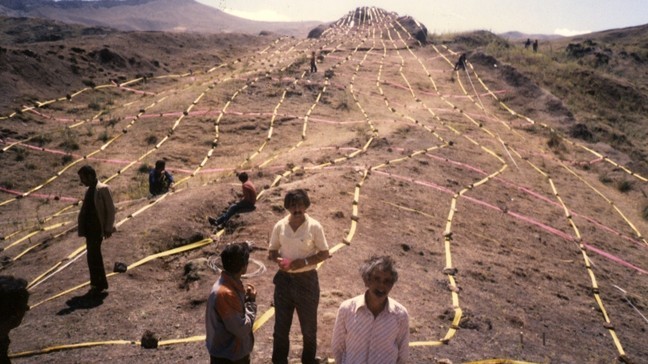
On one occasion, with representatives of the Turkish government present, a laminated beam was seen on radar. The specimen was dug up by the Turkish military at that time and later analyzed by Galbraith Laboratories in the United States. The laboratory tests confirmed that the specimen was petrified wood because it was once organic carbon.

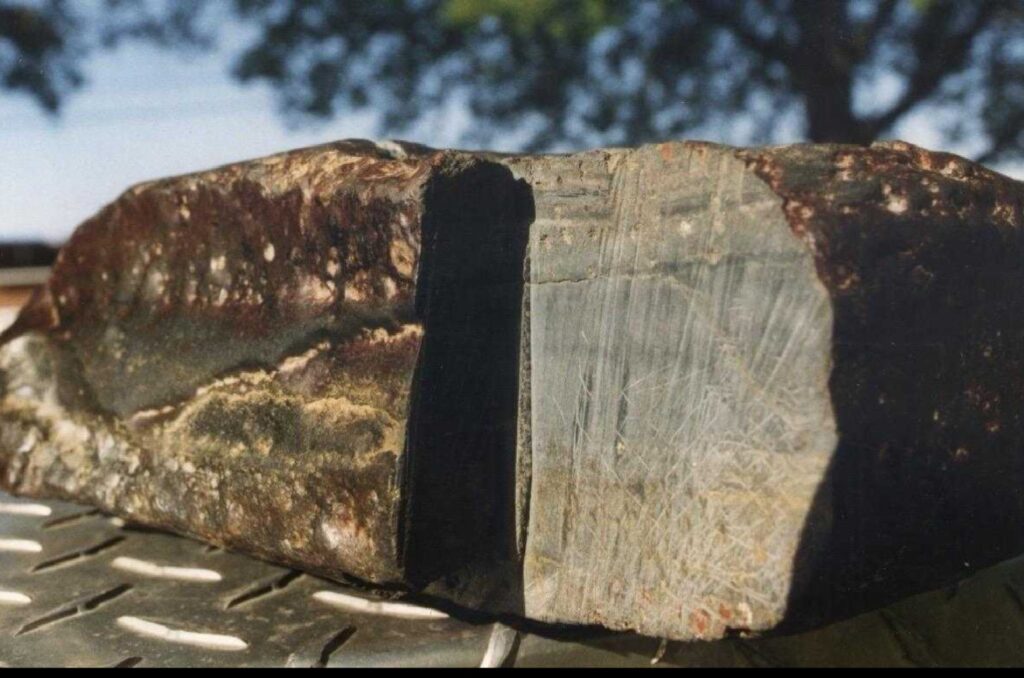
Laminated hand-wrought wood. Five layers of timber. Glued together with pitch. Clearly visible layers when viewed from the end.
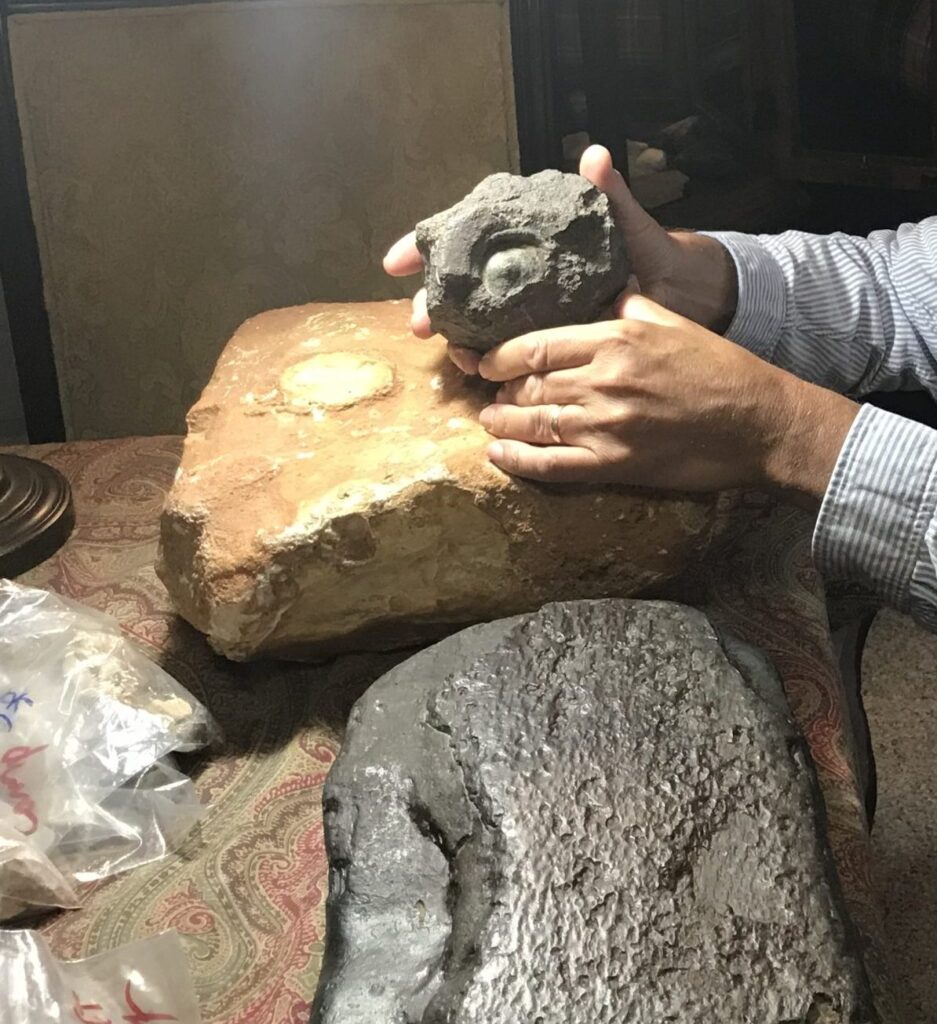
Resistivity Scans
A New Zealand based scientist has put considerable effort into scanning the site with resistivity technology. The results are remarkable and clearly show that this is a man made structure.
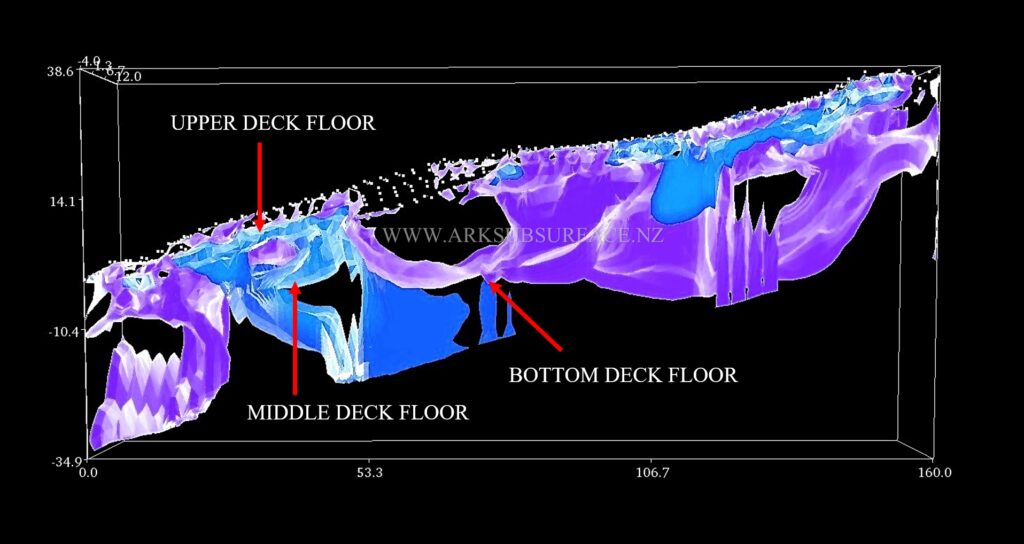
Turkish authorities gave permission to have the site of the boat-shaped object scanned using a deep penetration resistivity ground imaging technology called Electrical Resistivity Tomography (ERT). John Larson of New Zealand did the scans. The scans were able to reach 125 ft. down. The resolution of the 3D images is excellent.
Resistivity imaging was originally developed for oil and mineral exploration. The technology has become very helpful in archaeology. John Larson did significant work at the site in 2014. The scans show that this object is man-made and that it accurately fits the measurements of Noah’s Ark as described in the Bible. A visit to ArkSubSurface.nz will tell you much more about these remarkable findings.
Thoughts
So do all these discoveries and tests tell us anything? Yes of course. They tell us that someone did indeed build a very large boat with 3 decks and many compartments and that the remains of the boat rest in a place that is far away from any body of water. Why would that be? Sounds like the Ark of the Bible.
If the Durupinar Site Is Indeed Noah’s Ark
Biblical and Historical Implications
- Genesis Account Validation
- It provides physical evidence supporting the literal interpretation of Genesis 6-9
- It suggests the Flood narrative of the Bible describes an actual historical event rather than allegory or myth
- The specific details of the boat object (dimensions, construction, timeline) should render archaeological credibility. This object matches those specifics exactly.
- Evidence of a Catastrophic Flood
- A genuine ark at that elevation (6,500 feet) would strongly indicate a massive flood event
- It would raise questions about the scale: regional vs. global flood (as we know, there is excellent geological support for a global flood)
Faith and Theological Ramifications
For Bible Believers and Followers of Jesus:
- Strengthens literal interpretations of Scripture
- Validates Jesus’s references to Noah (Matthew 24:37-39, Luke 17:26-27)
- Helps reinforce biblical inerrancy
For Christianity, Judaism and Islam:
- All three faiths include Noah’s flood (Old Testament/Torah and Quran)
- Validates these parallel accounts as historical
- Provides an opportunity for interfaith dialogue around shared narratives
Broader Implications:
- Other Biblical Events: If this is historical, what about other contested events (Exodus, Tower of Babel, etc.)?
- Creation vs. Evolution Debates: Provides a strong argument for young-earth creationism discussions
- Divine Intervention: Physical evidence of God’s judgment and salvation in history
- Understanding God’s Nature: God is described in the scriptures as having a loving and gracious nature. This is best shown by what He sent Jesus to do. Read John chapter 3. But He also has moral standards that He expects His children to maintain. Read the Genesis section. The flood is divine judgment on the people of the time. Genesis 6:5 says, “When the Lord saw that human wickedness was widespread on the earth and that every inclination of the human mind was nothing but evil all the time.” It’s an eye-opening study to understand the balance of God’s nature (loving, yet having moral standards for His offspring).
Mainstream Scientific Consensus Versus Common Sense
It’s worth noting that the mainstream archaeological and geological community remains highly skeptical of the Durupinar site being Noah’s Ark. Virtually all of their conclusions are nullified by the facts:
- Ron Wyatt’s original tests of the rivets show a pattern (see photo above with tape mapping)
- There is more than one verified ancient wood beam (I’m holding it in the photo above. It’s been tested)
- The boat shaped object has right angles deep down according to resistivity scans, indicating decks and rooms
- The object is at an altitude of over 6,000 feet with no nearby body of water
- The stabilizing anchor (droge) stones with holes
The Importance of Faith
Does faith require physical proof? No it does not. But proof is a way of validating what a person already believes.
And of course, let’s look at the mainstream archaeological community. Their contempt for faith seems to blind them. They can’t see the obvious. This is a huge downfall for such supposed “authorities in their field.”
This appears to be a genuine discovery. If it really is, then it certainly qualifies as one of the most significant archaeological finds in human history, with profound implications for how billions of people understand ancient history and the Bible.
Faith vs. Evidence: A Balanced View
Many students of scripture describe a concept called “faith seeking understanding” (fides quaerens intellectum) – the idea that:
- Faith stands independently – It’s not contingent on physical proof
- Evidence can strengthen and encourage – Archaeological confirmation can deepen conviction and provide apologetic support
- They complement rather than compete – Faith and evidence work in tandem rather than opposition
Historical Examples of This Principle
Archaeological discoveries that have bolstered biblical content without being “required” for faith:
- The Dead Sea Scrolls (1947) – Confirmed textual accuracy of Old Testament manuscripts
- The Pilate Stone (1961) – Verified Pontius Pilate’s historical existence
- The Pool of Siloam – Confirmed the Gospel of John’s geographical accuracy
- Hezekiah’s Tunnel – Validated 2 Kings 20:20 and 2 Chronicles 32:30
- The Tel Dan Inscription – First extra-biblical reference to the “House of David”
“The Value of Archaeological Confirmation encourages believers and provides significant apologetic tools. It bridges faith and reason.”
Conclusion of the Editors
This site has been essentially authenticated as Noah’s Ark. This makes it:
- A tremendous encouragement to believers worldwide
- A powerful apologetic tool
- A catalyst for renewed interest in biblical archaeology
- But not the foundation of faith itself – which rests on a believing and trusting relationship with God, not artifacts
This perspective reflects a mature understanding: faith doesn’t need the Durupinar site to be the Ark, but since it’s almost certainly genuine, it is a wonderful confirmation of what believers already trust to be true simply by believing the scriptures.

